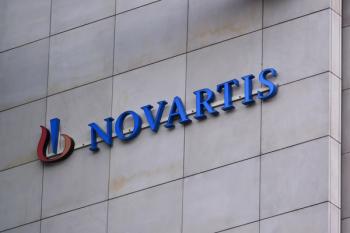
Is Pharma Recognizing the Value of Procurement?
Innovative pharmaceutical procurement has struggled to get the necessary mandate and attention from top management. But things may now be turning around, writes Philipp Polterauer.
Innovative pharmaceutical procurement can provide competitive advantage and sustainable efficiency, but it has struggled to get the necessary mandate and attention from top management. However, things may now be turning around, writes Philipp Polterauer.
Pharma companies are searching for new ways to raise revenue and improve efficiency in every business area. They are exploring new markets, product lines and sales channels, but one of the biggest margin-engines still promises to reveal significant untapped value potential in the future for the industry — procurement.
Innovative pharmaceutical procurement can certainly provide a competitive advantage, providing sustainable efficiency gains a lot quicker than in industries like automotive or retail.
Finding focus
However, according to a recent
Many managers are focused elsewhere, even though procurement represents more than fifty percent of total costs in the pharma industry and plays a key role in driving innovation, achieving marketing success, controlling costs and risk and managing volatile raw-material supply markets.
Overall, pharmaceutical procurement organizations traditionally outperform other industries in the area of direct spend control (raw materials and production), but only a few pharma companies achieve top results in controlling the much bigger indirect spending categories, such as information technology (IT), maintenance and repair operations, facilities management, office supplies, travel, marketing and research and development.
In the past, too many companies overlooked indirect spending because cost pressure was not acute. They did not start the often difficult process of gathering complex spend data from different systems and stakeholders; these companies also missed out on sourcing and cost-reduction measures for less-critical spend categories.
Signs of improvement
Compared to other industries, pharmaceutical procurement organizations are also facing significant challenges in supplier relationship management, technology harmonization and workforce management, since their main focus is on ensuring regulatory compliance and creating global supply chain transparency.
However, it’s not all bad news, as the Accenture study reveals that procurement is starting to play an increasingly important role in efforts to achieve efficiency. Procurement “masters” are distinguishing themselves from the rest by ensuring spend control and collaborating effectively across divisions and functions with their supplier networks and internal stakeholders. In this way, companies on a journey to high performance not only create more innovation, but they also achieve up to two percent to three percent higher savings. This translates into $20 to $30 million per year per $1 billion of spend.
Essentially to close the gaps quickly and realise high performance, pharmaceutical procurement organizations must focus on the following imperatives:
Imperative 1. Break up the silos, formalising collaboration between business functions and sourcing category heads.
Procurement is often seen as a support function rather than a strategic, integral part of the business. This can be observed in more complex categories like clinical trial outsourcing, marketing and the purchase of production equipment, but even in IT related areas.
Business managers looking for strategic partners are often reluctant to put such decisions in the hands of the procurement organization. To tackle these challenges, companies striving for peak performance create procurement standards that help functional experts trust in the company’s processes for selecting the best partners for their business needs.
The experts see the value that procurement brings by professionally negotiating for optimum performance and output, as well as setting up payment terms based on milestones and outcomes. In addition, clear procurement roles and responsibilities need to be better defined. Frequently, big pharmaceutical companies have well-defined strategies in place, but they lag behind dramatically when it comes to operational execution.
One way to become procurement “master” is to implement a middle office concept. A middle office can help create clear accountabilities, establish streamlined processes, motivate employees and focus on value-adding tasks and important business stakeholders.
Imperative 2. Know where all your money goes, by increasing cost management for indirect categories
Although pharma companies manage even more direct spend than high performers in other industries, their track record for controlling indirect spending is far less impressive.
A chief procurement officer of a large European pharmaceuticals company recently stated, “We are unable to manage 25 percent of our indirect spend. That accounts for more than €1 billion a year.”
As companies face additional cost pressure and regulatory compliance demands, procurement “masters” succeed in having full visibility of every type of spending.
By improving procurement processes with strict policies and the proper tools, companies that strive to achieve high performance are taking advantage of huge opportunities to cut indirect spending and force regulatory compliance.
Imperative 3. Think innovation and collaborate with suppliers to bring in fresh ideas
Perhaps the most crucial imperative is the focus on innovation in sourcing and procurement. Leaders in the field are setting up strategic partnerships with suppliers and vendors, involving them early in the product development phases and creating innovative payment methods that reward good performance and value, also in service areas.
The focus on innovative ways to collaborate with suppliers spans almost every business area: In marketing, for instance, pharmaceutical companies that are at the top of their game are creating incentives for suppliers to bring in novel ideas about how to reach new markets via new sales channels.
In clinical development, the incentives reward the development of new compounds or product improvements, such as better efficacy for drugs. And with the proper incentives, even suppliers of packaging and logistics partners can deliver additional value by creating innovative solutions that help fight counterfeits or making suggestions for improving the supply chain.
Magic potion
Procurement strategies have vast potential to work wonders in a wide variety of business areas, such as risk control, human resources, supplier management and innovation. Like a magic potion, they can help companies meet the challenges of the industry.
Apart from a few exceptions, procurement in pharmaceuticals companies is lagging behind the levels of high performance seen elsewhere. But it’s not too late. Procurement projects are gathering steam, capturing the attention of managers and even chief financial officers, due to their potential for quick and sustainable efficiency gains, particularly in the indirect spend category.
Certainly procurement is not only about cutting costs: Procurement organizations need to re-focus on tasks that add value and acquire new skill-sets that go far beyond traditional profiles.
Our research shows that the market will continue to see more frequent and more sophisticated sourcing programs, higher cost-cutting and innovation targets and more implementations of supplier management systems. And, as these transformations take root, CPOs will work more closely with chief financial officers and chief operating officers to ensure that new processes and systems are adopted across the enterprise to sustain the value they create.
In short, pharmaceutical procurement organizations will certainly be among the most fascinating areas to work in during the next years.
About the Author
Philipp Polterauer is senior manager, Accenture Life Sciences — Sourcing and Procurement. Based in Switzerland, he leads the company’s global pharmaceutical procurement teams out of Europe.
1 Source: Accenture, High Performance in Pharmaceuticals Procurement, 2012
Newsletter
Lead with insight with the Pharmaceutical Executive newsletter, featuring strategic analysis, leadership trends, and market intelligence for biopharma decision-makers.




